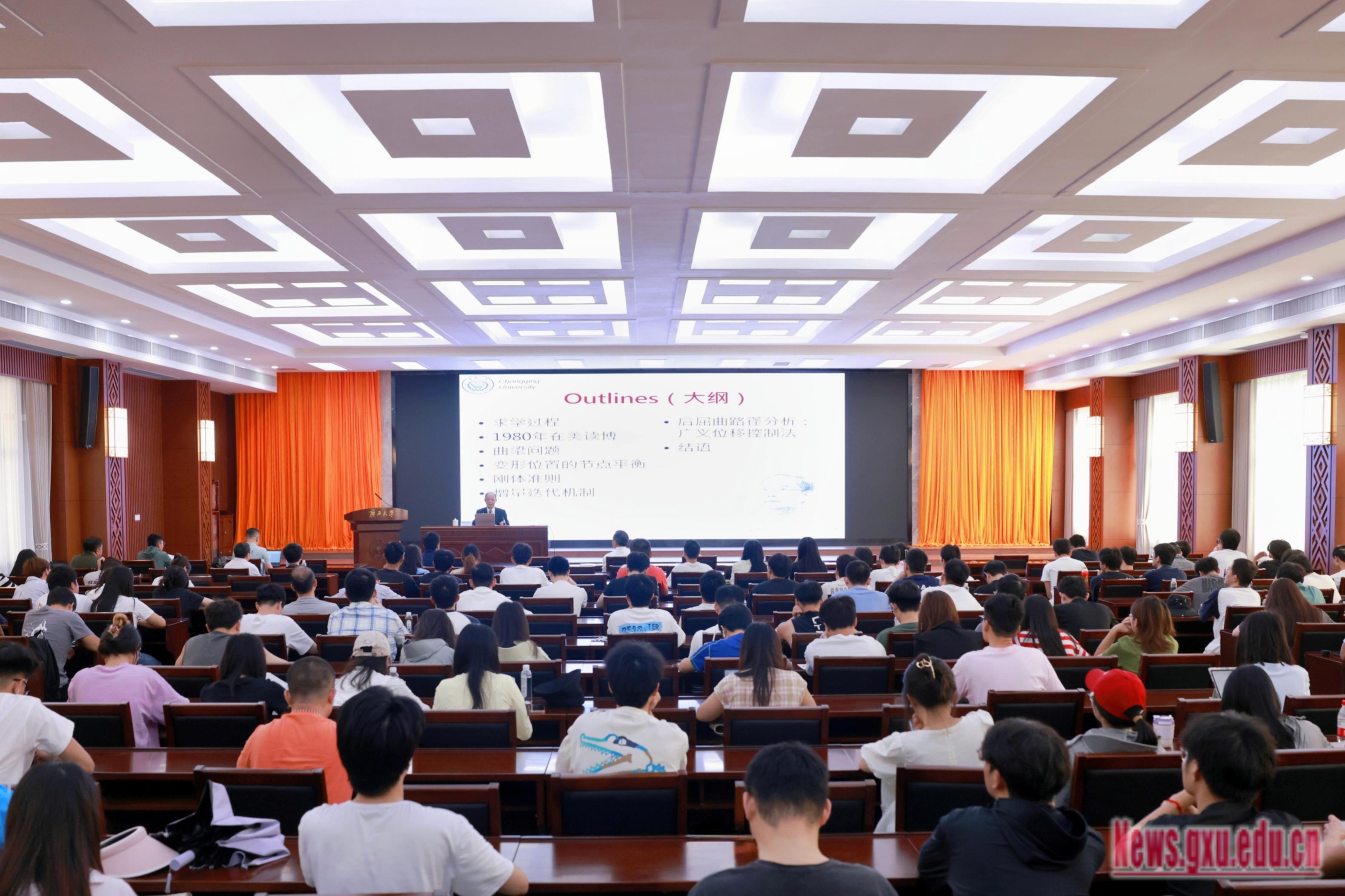May 13th, Prof. Dr. Yang Yongbin, academician of the Chinese Academy of Engineering, was invited to deliver a lecture entitled "Advancing on the Path of Engineering Science" for faculty and students at our university's Junwu Forum. The event was presided over by Prof. Dr. Xiao Jianzhuang, member of Party Committee and Vice President of GXU.

Prof. Dr. Xiao Jianzhuang welcomed Prof. Dr. Yang Yongbin's lecture at our university, emphasizing that Guangxi University, as a high-level institution dedicated to cultivating high-quality talents and promoting scientific innovation, as well as the highest academic institution in Guangxi, should continue to focus on the development trends and cutting-edge technologies of engineering science, strengthen interdisciplinary integration, and encourage innovation and creation.
During the lecture, Prof. Dr. Yang Yongbin combined his own experiences in growth, education, scientific research, and serving society to review the journey of each stage and share the experiences and insights gained on the path of exploring engineering science. He urged scholars to firmly uphold the belief of "choosing the good and sticking to it, and keeping pace with the times" in their learning paths, and interacted with the faculty and students present to answer their questions.
Prof. Dr. Yang Yongbin, honorary dean of the School of Civil Engineering at Chongqing University and honorary professor of the Department of Civil Engineering at Taiwan University, is an academician of the Chinese Academy of Engineering, the Austrian Academy of Sciences, and the European Academy of Sciences and Arts. He was initially engaged in research on structural nonlinearity and stability theory, making unique contributions to the treatment of rigid body rules and nodal moments. Since the 1990s, he has initiated research on the theory of mutual restraint between vehicle and bridge, the propagation of soil waves induced by trains, and the bridge vehicle scanning method, leading the world in these fields.
Representatives from the Research Institute, School of Mechanical Engineering, School of Electrical Engineering, and School of Civil and Architectural Engineering, totaling over 300 faculty and students, attended the lecture.
 Home
>
News & Events
>
Events
Home
>
News & Events
>
Events
 Home
>
News & Events
>
Events
Home
>
News & Events
>
Events




